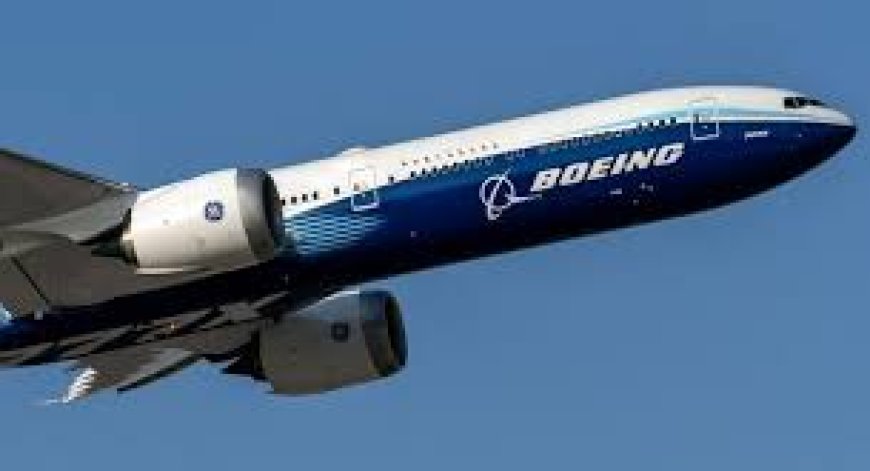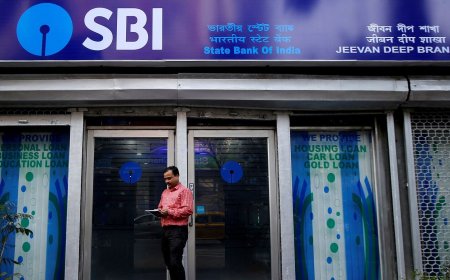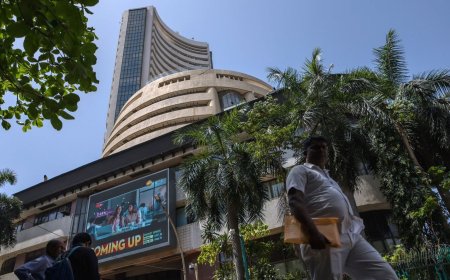Boeing stock climbs despite Air India tragedy, safety concerns still haunt the skies
Boeing shares rise 2.4% despite the Air India Express tragedy, but ongoing safety concerns continue to challenge public trust and regulatory confidence.

Despite renewed safety scrutiny after a tragic Air India Express incident involving a Boeing 737 aircraft, Boeing Co.’s stock saw an unexpected uptick in the trading week, signaling investor confidence in the aerospace giant’s long-term resilience. However, industry analysts warn that underlying safety concerns still cast a long shadow over the skies.
Tragedy in India Rekindles Safety Debate
On July 5, an Air India Express Boeing 737 aircraft crashed shortly after takeoff from Kozhikode, resulting in 39 fatalities and dozens injured. Preliminary investigations suggest a possible technical fault, although authorities have not officially confirmed the cause.
The incident, one of the deadliest aviation accidents in recent years in India, has reignited global attention toward Boeing’s safety record. India’s Directorate General of Civil Aviation (DGCA) and the U.S. Federal Aviation Administration (FAA) are collaborating in the investigation.
“While we await formal conclusions, this incident underlines that safety reforms across aircraft manufacturers are far from over,” said Arun Saxena, President of the International Aviation Safety Association (IASA). “It puts renewed pressure on Boeing to reinforce quality assurance.”
Wall Street Shrugs, Stock Climbs 2.4%
In a surprising market move, Boeing’s stock (NYSE: BA) rose by 2.4% over the past week, closing Friday at $232.78. This gain came despite a turbulent news cycle and increased public concern over aircraft safety.
Some investors attribute the price momentum to broader sector optimism and Boeing’s positive order pipeline, including large deals announced at the Farnborough Airshow, where Boeing secured commitments for over 150 new aircraft from carriers in the Middle East and Southeast Asia.
“Market sentiment around Boeing is driven less by isolated incidents and more by long-term delivery schedules and defense contracts,” said Jonathan Miller, Equity Analyst at Beacon Global Advisors. “Institutional investors appear to be looking beyond the headlines.”
Recurring Safety Troubles: A Persistent Cloud
The recent Air India incident is the latest in a string of safety-related episodes involving Boeing aircraft. From the 737 MAX tragedies in 2018 and 2019 to recent mid-air panel blowouts and manufacturing concerns with suppliers like Spirit AeroSystems, Boeing has struggled to regain full public trust.
A March 2025 FAA audit cited “incomplete compliance protocols” and demanded systemic reforms across production units. Boeing responded with a $1.4 billion commitment to manufacturing upgrades and quality checks through 2026.
Still, skepticism persists. “Investors may be betting on the future, but consumers and regulators are not so forgiving,” said Meera Bhagat, an aviation risk consultant based in London. “This disconnect could widen if Boeing doesn't bridge its operational safety gaps quickly.”
Boeing’s Defense Division and Backlog Cushion Risks
Despite civil aviation headwinds, Boeing’s robust defense and space business continues to act as a financial stabilizer. With contracts from NASA, the U.S. Air Force, and multiple NATO allies, the division brought in over $10 billion in revenue in Q1 2025.
Additionally, Boeing’s commercial order backlog has crossed 5,000 aircraft, representing over six years of production. Deliveries are forecast to accelerate in Q3, particularly to fast-growing Asian markets.
“The sheer size of Boeing’s backlog and its dual-sector footprint give it insulation against short-term shocks,” noted Alex Cheng, portfolio manager at Rainbridge Capital. “Unless regulatory agencies ground a model, investors will likely stay the course.”
Airlines Under Pressure as Confidence Wavers
While Boeing may be shielded by institutional backing, the fallout is already affecting airline operators. Shares of Air India’s parent company, Tata Group, fell 3.6% after the crash, with passengers demanding accountability and regulatory reforms.
Other Indian carriers like IndiGo and SpiceJet, both significant Boeing clients, are now under pressure to reassure fliers about fleet safety. DGCA has mandated fresh safety audits for all Boeing aircraft operating in India over the next 30 days.
Globally, some airlines are even considering diversifying aircraft procurement. According to reports, Turkish Airlines and Korean Air are in early discussions with Airbus for upcoming fleet expansions.
Investor Outlook: Bullish, but Cautiously So
Despite the somber backdrop, the investment community maintains a cautiously optimistic view on Boeing.
Morgan Stanley upgraded Boeing to “Overweight” with a 12-month target price of $265, citing improved delivery rates and regulatory tailwinds in Europe. However, the report also flagged “reputational volatility” as a key downside risk.
“The investment thesis hinges on execution. Boeing can’t afford more unforced errors,” emphasized Diane Harper, Aerospace Sector Lead at Morgan Stanley. “Each tragedy weakens brand equity and triggers regulatory tightening.”
A Company at Crossroads
As Boeing attempts to climb out of its reputational turbulence, it must balance investor expectations, regulatory scrutiny, and public perception. While the stock may rise on the strength of defense deals and delivery forecasts, the Air India Express tragedy serves as a stark reminder that in aviation, safety is the true bottom line.
Until Boeing demonstrates not just profitability, but reliability, its ascent will remain under a cloud.
What's Your Reaction?
 Like
0
Like
0
 Dislike
0
Dislike
0
 Love
0
Love
0
 Funny
0
Funny
0
 Angry
0
Angry
0
 Sad
0
Sad
0
 Wow
0
Wow
0












































































